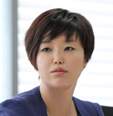[tbs eFM] 2015-7-20
* tbs eFM Primetime Talk (2015.7.20)
Q1. Do you believe this is a genuine step towards change in Iran’s conservative, theocratic regime or do they have other purposes in mind?
Q2. Is there a lot of domestic friction and disagreement between the reformists, hardline clerics and other factions in Iran that could potentially scupper the deal?
Q3. Do you feel that perhaps the West has disassociated the nuclear issue from that of Iran’s destabilizing role in places like Syria and Lebanon? Why wasn’t Iran’s involvement in those regions included as part of the negotiations?
Q4. Do you believe that sanctions should be re-imposed if Iran uses the economic windfall from the deal to continue providing financial and military support to groups like Hezbollah and the Assad regime?
Q5. How damaging is the deal to U.S-Israeli relations? How credible is the increased security threat to Israel that could stem from the agreement?
Q6. Likewise, how are the Sunni-majority Saudis worried over the prospects of Iran’s emergence as a stronger regional player, especially in the oil market?
Q7. By going against their traditional allies in Saudi Arabia and Israel and dealing with a long-time adversary in Iran, does this represent a significant change in U.S policies in the region?
Q8. Do you believe this deal will hold up and pave a solid path towards friendly relations with the U.S, or are there too many obstacles involved that could set back the clock?

 Facebook
Facebook Twitter
Twitter